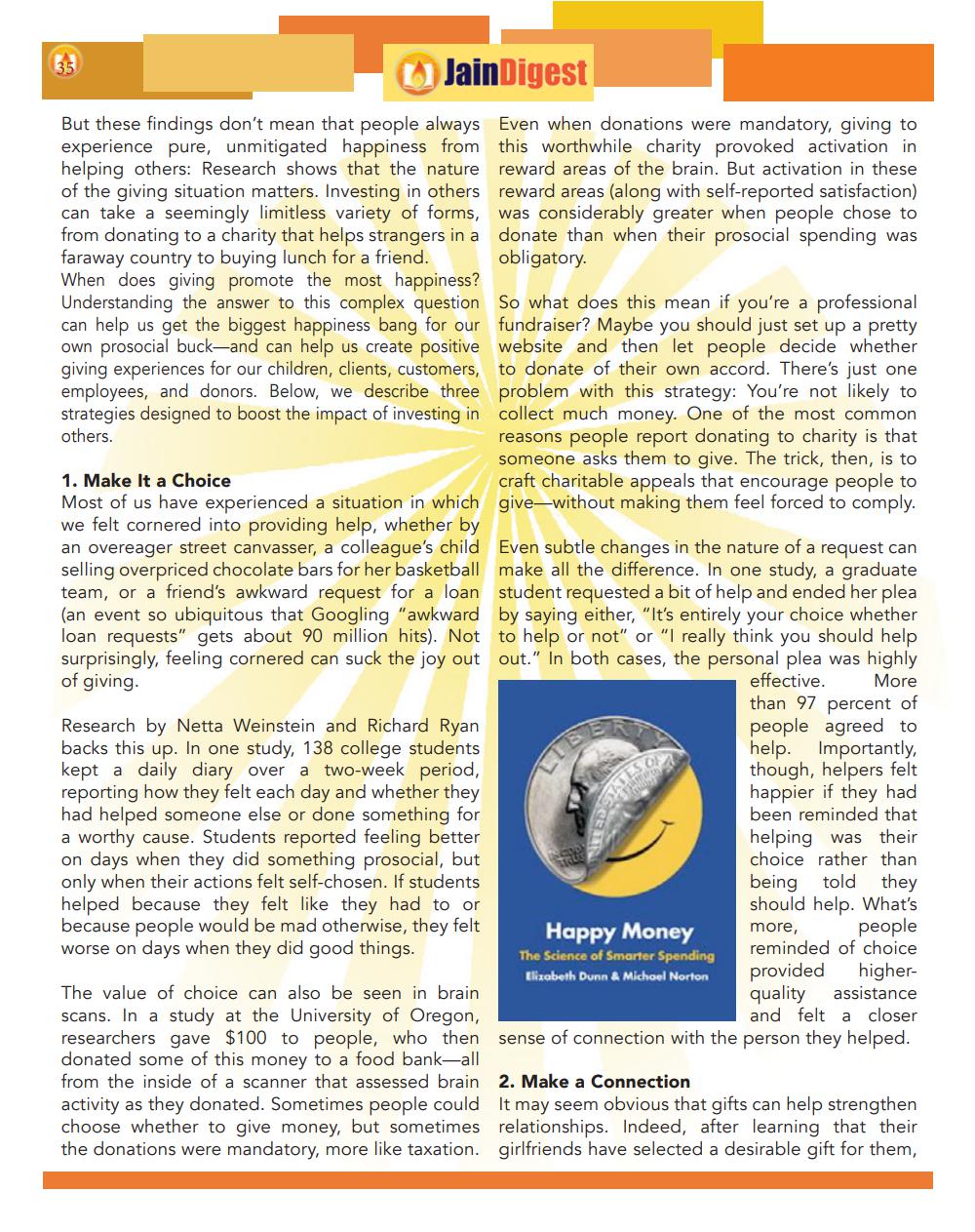________________ JainDigest But these findings don't mean that people always Even when donations were mandatory, giving to experience pure, unmitigated happiness from this worthwhile charity provoked activation in helping others: Research shows that the nature reward areas of the brain. But activation in these of the giving situation matters. Investing in others reward areas (along with self-reported satisfaction) can take a seemingly limitless variety of forms, was considerably greater when people chose to from donating to a charity that helps strangers in a donate than when their prosocial spending was faraway country to buying lunch for a friend. obligatory When does giving promote the most happiness? Understanding the answer to this complex question So what does this mean if you're a professional can help us get the biggest happiness bang for our fundraiser? Maybe you should just set up a pretty own prosocial buck--and can help us create positive website and then let people decide whether giving experiences for our children, clients, customers, to donate of their own accord. There's just one employees, and donors. Below, we describe three problem with this strategy: You're not likely to strategies designed to boost the impact of investing in collect much money. One of the most common others. reasons people report donating to charity is that someone asks them to give. The trick, then, is to 1. Make It a Choice craft charitable appeals that encourage people to Most of us have experienced a situation in which give--without making them feel forced to comply. we felt cornered into providing help, whether by an overeager street canvasser, a colleague's child Even subtle changes in the nature of a request can selling overpriced chocolate bars for her basketball make all the difference. In one study, a graduate team, or a friend's awkward request for a loan student requested a bit of help and ended her plea (an event so ubiquitous that Googling "awkward by saying either, "It's entirely your choice whether loan requests" gets about 90 million hits). Not to help or not" or "I really think you should help surprisingly, feeling cornered can suck the joy out out." In both cases, the personal plea was highly of giving. effective. More than 97 percent of Research by Netta Weinstein and Richard Ryan people agreed to backs this up. In one study, 138 college students help. Importantly, kept a daily diary over a two-week period, though, helpers felt reporting how they felt each day and whether they happier if they had had helped someone else or done something for been reminded that a worthy cause. Students reported feeling better helping was their on days when they did something prosocial, but choice rather than only when their actions felt self-chosen. If students being told they helped because they felt like they had to or should help. What's because people would be mad otherwise, they felt Happy Money more, people worse on days when they did good things. reminded of choice The Science of Smarter Spending Elizabeth Dunn & Michael Norton provided higherThe value of choice can also be seen in brain quality assistance scans. In a study at the University of Oregon, and felt a closer researchers gave $100 to people, who then sense of connection with the person they helped. donated some of this money to a food bank--all from the inside of a scanner that assessed brain 2. Make a Connection activity as they donated. Sometimes people could It may seem obvious that gifts can help strengthen choose whether to give money, but sometimes relationships. Indeed, after learning that their the donations were mandatory, more like taxation. girlfriends have selected a desirable gift for them,




